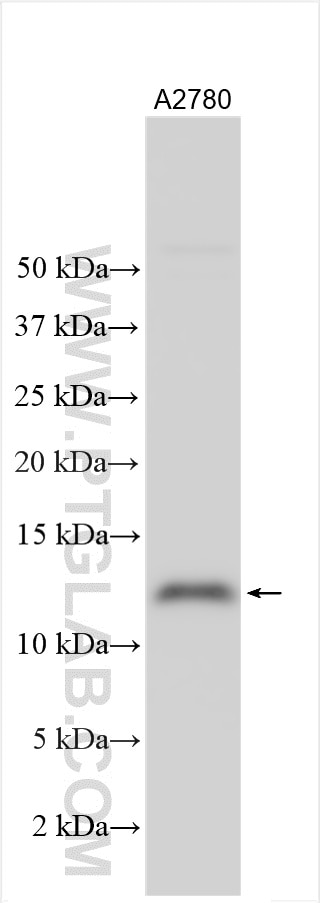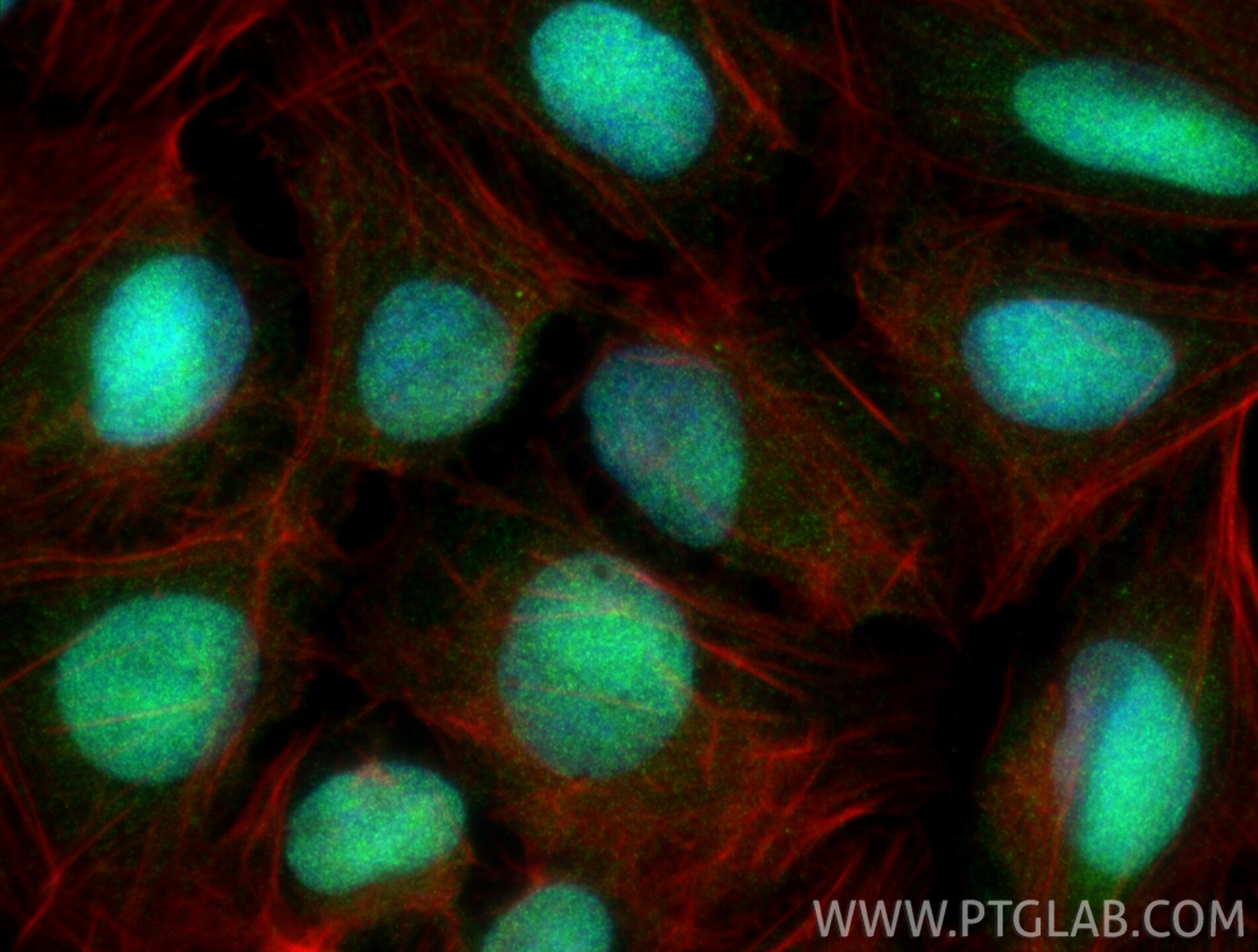Tested Applications
| Positive WB detected in | A2780 cells |
| Positive IF/ICC detected in | U2OS cells |
Recommended dilution
| Application | Dilution |
|---|---|
| Western Blot (WB) | WB : 1:500-1:3000 |
| Immunofluorescence (IF)/ICC | IF/ICC : 1:400-1:1600 |
| It is recommended that this reagent should be titrated in each testing system to obtain optimal results. | |
| Sample-dependent, Check data in validation data gallery. | |
Product Information
19570-1-AP targets FAM32A in WB, IF/ICC, ELISA applications and shows reactivity with human samples.
| Tested Reactivity | human |
| Host / Isotype | Rabbit / IgG |
| Class | Polyclonal |
| Type | Antibody |
| Immunogen |
CatNo: Ag13761 Product name: Recombinant human FAM32A protein Source: e coli.-derived, PGEX-4T Tag: GST Domain: 1-112 aa of BC000639 Sequence: MEAYEQVQKGPLKLKGVAELGVTKRKKKKKDKDKAKLLEAMGTSKKNEEEKRRGLDKRTPAQAAFEKMQEKRQMERILKKASKTHKQRVEDFNRHLDTLTEHYDIPKVSWTK Predict reactive species |
| Full Name | family with sequence similarity 32, member A |
| Calculated Molecular Weight | 112 aa, 13 kDa |
| Observed Molecular Weight | 13 kDa |
| GenBank Accession Number | BC000639 |
| Gene Symbol | FAM32A |
| Gene ID (NCBI) | 26017 |
| Conjugate | Unconjugated |
| Form | Liquid |
| Purification Method | Antigen affinity purification |
| UNIPROT ID | Q9Y421 |
| Storage Buffer | PBS with 0.02% sodium azide and 50% glycerol, pH 7.3. |
| Storage Conditions | Store at -20°C. Stable for one year after shipment. Aliquoting is unnecessary for -20oC storage. 20ul sizes contain 0.1% BSA. |
Background Information
FAM32A (family with sequence similarity 32 member) is also known as ovarian tumor associated gene-12 (OTAG-12, OTAG12) and its expression is suppressed in ovarian cancer. FAM32A is involved in increased cell proliferation and suppresses apoptosis (PMID: 21339736). FAM32A protein is a 13 kDa protein that consists of 112 amino acids and is predominantly located in the nucleus (PMID: 39730183).
Protocols
| Product Specific Protocols | |
|---|---|
| IF protocol for FAM32A antibody 19570-1-AP | Download protocol |
| WB protocol for FAM32A antibody 19570-1-AP | Download protocol |
| Standard Protocols | |
|---|---|
| Click here to view our Standard Protocols |






